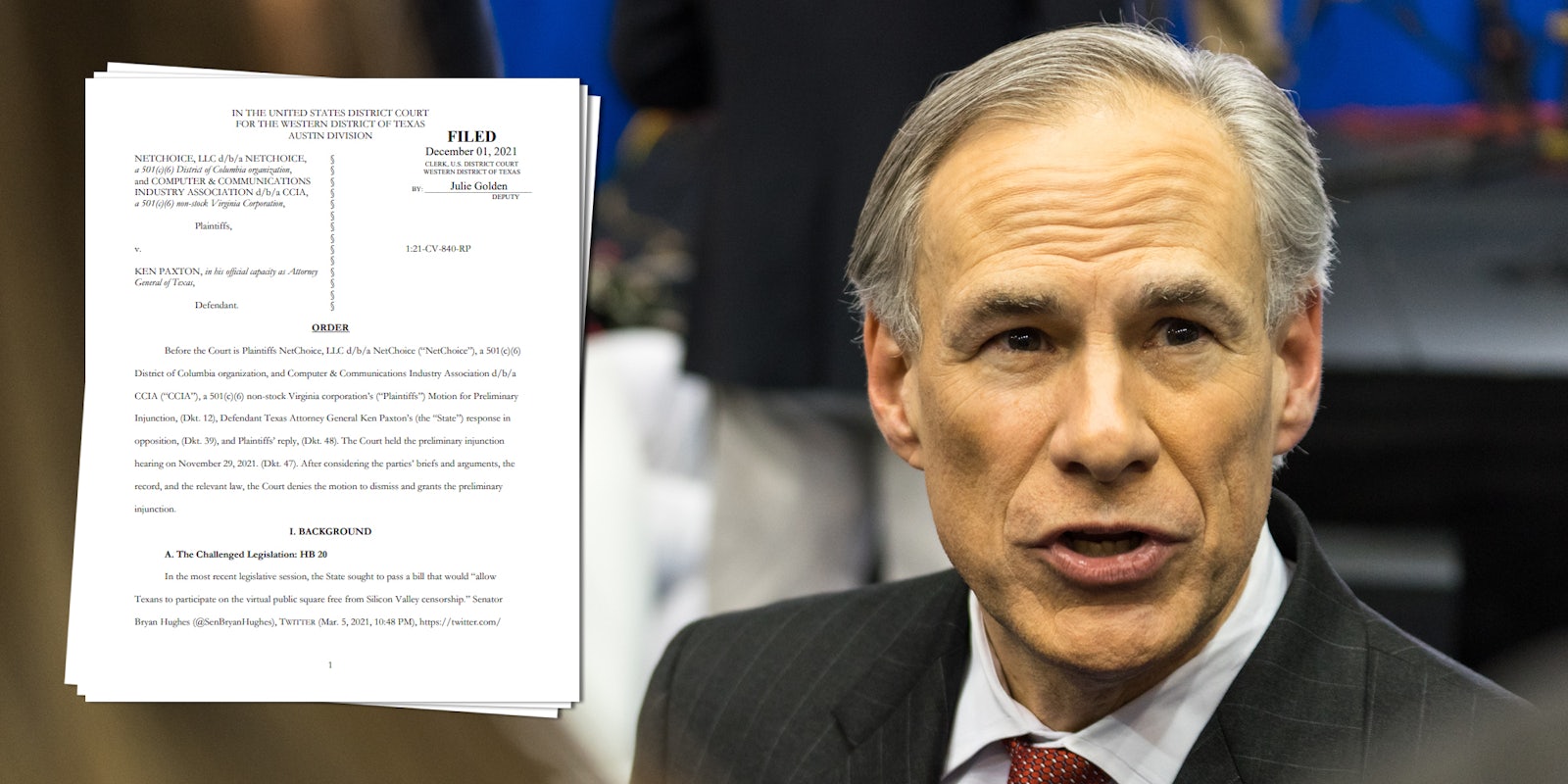A federal judge blocked a much-criticized social media law in Texas that would have prohibited companies from banning or blocking users based on their “viewpoint.”
Texas’ law, which was signed in September, was similar to one that was passed in Florida earlier this year that was also blocked by a federal judge.
Specifically, the Texas law made it illegal for a social media platform to “censor a user, a user’s expression, or a user’s ability to receive the expression of another person” based on the “viewpoint” of the user or another person. The law applied to platforms with more than 50 million active users, which would have included sites like Facebook, Twitter, and others.
Shortly after it was signed, the law was challenged by a lawsuit filed by NetChoice and the Computer Communications Industry Association (CCIA), two trade groups. The suit claimed the law was unconstitutional and violated the First Amendment rights of companies who choose what speech they hosted.
On Wednesday, a federal judge issued an order granting a preliminary injunction against the law.
“The Supreme Court’s holdings in Tornillo, Hurley, and PG&E, stand for the general proposition that private companies that use editorial judgment to choose whether to publish content—and, if they do publish content, use editorial judgment to choose what they want to publish—cannot be compelled by the government to publish other content,” the judge wrote, later adding: “HB 20’s prohibitions on ‘censorship’ and constraints on how social media platforms disseminate content violate the First Amendment.”
The judge’s decision was cheered by NetChoice and CCIA.
“Today’s outcome is not surprising. The First Amendment ensures that the government can’t force a citizen or company to be associated with a viewpoint they disapprove of, and that applies with particular force when a State law would prevent companies from enforcing policies against Nazi propaganda, hate speech, and disinformation from foreign agents,” CCIA President Matt Schruers said in a statement.
Read more about Big Tech
| Congress barrels forward with EARN IT Act, determined to end encrypted messaging online |
| How little tech is turning the tide in the fight against big tech |
| FTC warns of ‘huge surge’ in social media scams |
| How the FTC can use ‘data minimization’ to immediately strengthen consumer privacy |
| Sign up to receive the Daily Dot’s Internet Insider newsletter for urgent news from the frontline of online. |
